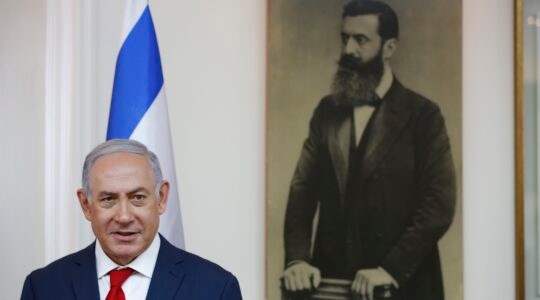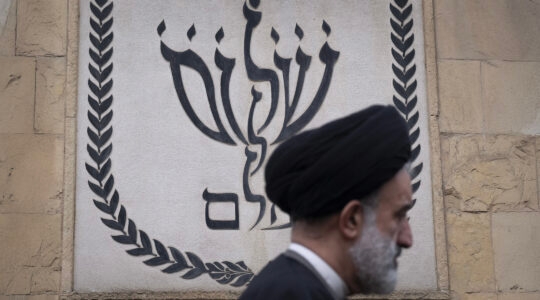(JTA) — Israeli Prime Minister Benjamin Netanyahu dismissed concerns raised by Britain’s chief rabbi about the growth of West Bank settlements.
In a London meeting with United Kingdom Jewish leaders Wednesday evening, Chief Rabbi Ephraim Mirvis told Netanyahu that friends of Israel approach him with the request to “help us help you,” by limiting settlement expansion, the Times of Israel reported, citing an unnamed official who attended the closed session.
Netanyahu said that “settlements are not the issue,” and argued that the Arab-Israeli conflict existed well before the establishment of Israeli settlements beyond the Green Line.
This summer, Mirvis’ predecessor, Lord Jonathan Sacks, said that the boycott, divestment and sanctions (BDS) campaign, much of which focuses on the settlements, has made it “almost impossible” for European Jews to support Israel, according to the Times of Israel.
Asked about settlements Thursday in a meeting with British politicians, Netanyahu said most settlers live within three urban blocs that are expected to remain under Israeli control in the event of a peace deal with the Palestinians.
“There has to be mutual recognition, an end of claims and an end of demands to flood Israel with the descendants of Palestinian refugees any more than we would flood their territory with the descendants of Israeli settlers. There has to be that symmetry,” Netanyahu said, according to the Times of Israel.
At the meeting with Parliament members, Netanyahu emphasized his support for a two-state solution and said the rise of militant Islam in the Middle East has brought about a “sea change” in Israel’s relations with Sunni Arab states, which could be used to achieve a peace deal with the Palestinians.
Leaders of countries bordering Syria, Iraq, Yemen and Libya, he said, “have come to view Israel not as an enemy but as an ally in stemming the tide of militant Islamism.”
Netanyahu said the new-found convergence of interests between the Sunni Arab world and Israel could help bring about a “realistic peace” with the Palestinians, placing pressure on Palestinian Authority President Mahmoud Abbas to sign a deal.
JTA has documented Jewish history in real-time for over a century. Keep our journalism strong by joining us in supporting independent, award-winning reporting.





